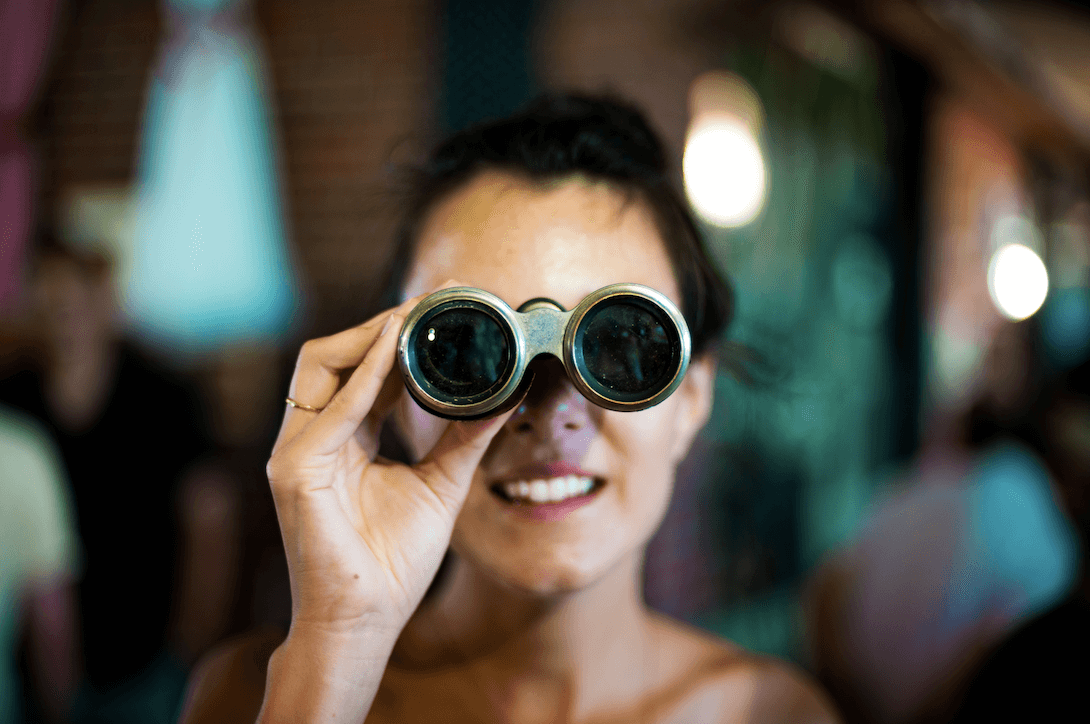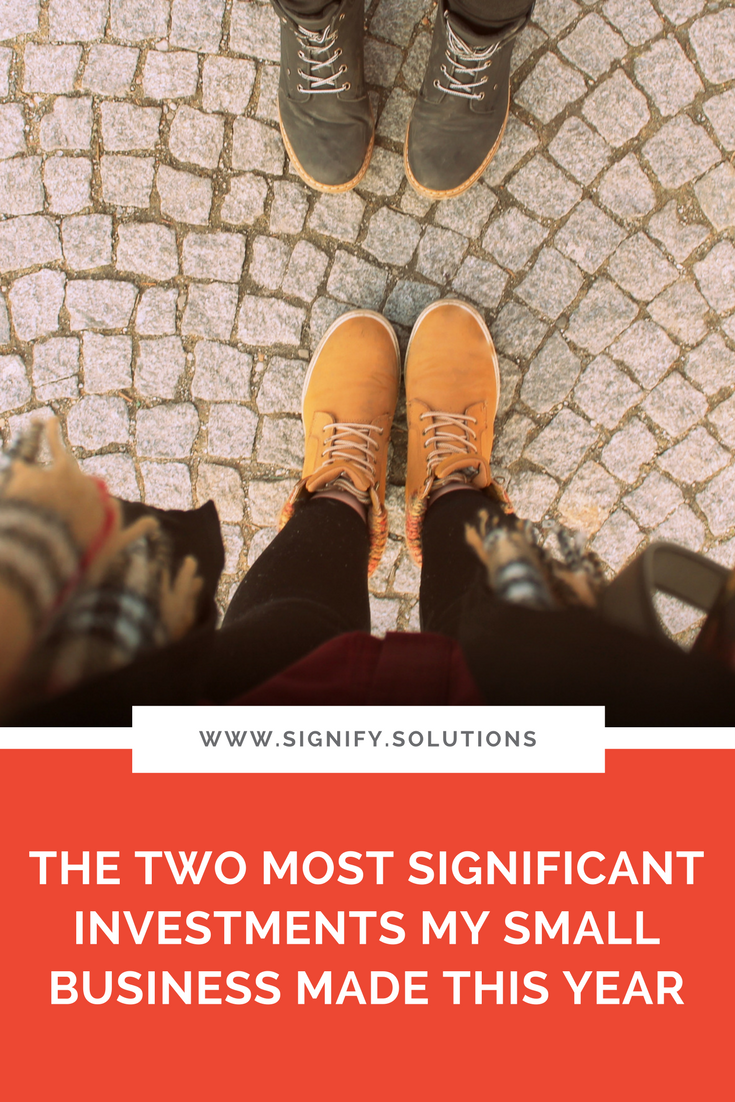The end of the year is coming fast, which very likely means a busy season for you. You either have a big sale ahead of you, or you’re heading into the year-end fundraising season. Some of you may also have both.
And, realistically, a lot of you are already tired.
Not only are you a human with a life and responsibilities, but you are also at a cause-related organization, either for- or non-profit. So, whether your work deals with extremely sensitive and dark subjects like human trafficking or not, you still feel the pressure to succeed because there’s a social problem you’re trying to solve. There is a different kind of gravity to your work that few understand.
This can certainly wear on you over time, and without checks and balances, can lead to burnout. And burnout would be a terrible situation not only for you, but for your cause. The world needs your work!
So, what’s the answer to combating the fatigue and burnout? Community.
Community can give you the inspiration and motivation to make it through another year, month, or even day.
Essentially, you need to find your tribe—even if that’s only one other person.
How do you find the community you desperately need? I’ll show you.
Why You Shouldn’t Only Rely on Co-workers, Friends, and Family
When it comes to community, too many people only rely on their co-workers, friends, and family to fill that void, even when it comes to their work. I think this is a problem.
I don’t know about you, but very few of my friends and family have founded a nonprofit or social enterprise. They’re incredibly supportive for sure, but they just can’t relate.
And as a solopreneur, I have no co-workers! Some days I love this fact, and some days I don’t. But even if you have co-workers, there are probably still a few things you avoid talking about like your salary. It just gets messy.
If you founded the organization, unless you have a co-founder, you also don’t have any direct peers. Meaning, you can’t be completely open and honest with the people in your office either because you need to maintain some professional distance.
Are you seeing the pattern? If you only rely on co-workers, friends, and family to be your community, there are gaps of your work that may never receive essential feedback, support, or input. That can impact you in a big way! It may stunt your success, allow little problems to grow into big problems, or even cause blind spots.
Worse still, without the ability to adequately communicate your thoughts and feelings to people who truly understand, it can lead to depression and isolation. I don’t know about you, but these are two things I already struggle with at times, so I don’t need anything else contributing to these issues.
Again, this would be a heartbreaking for you as a person, but it would also effect your organization. And my guess is that you care deeply about your cause and want to succeed. I want that for you too, so let’s talk about a few places where you can find the community you need.
Accountability Partner
Anytime a new or aspiring entrepreneur asks me for advice, the first thing I tell them is to get both an accountability partner and a mentor. I didn’t know how badly I needed these people in my life until I had them—and I don’t want you to miss out!
An accountability partner is someone in a similar situation or role. They don’t have to be at the same type of organization, but it’s great if they have similar responsibilities. Alternatively, they could be someone who is trying to accomplish a similar goal like writing a book.
Accountability partners are fantastic because they serve as a peer who can almost act like a co-worker or partner without the same strings. You are there to help each other succeed in your goals through, well, accountability.
You’ll be able to accomplish your goals because someone is there to regularly ask about them. It’s the same reason that Weigh Watchers meetings work so well. You take the necessary steps because you’ve got to get on a scale the next week to measure your progress.
You also both show up because you don’t want to let the other person down. Plus, they can provide a perspective and sounding board that you may currently be lacking. And, let’s face it, sometimes you just need to complain to someone who fully relates to your situation. We all have those days!
If you don’t have someone already in mind for your accountability partner, ask friends, family, or even put the word out on social media. It may take some time to find this person, but it will absolutely be worth it.
You might also consider a trial period to make sure you’re a good fit. My previous accountability partner and I had only just met when we decided to test the waters. We agreed to meet twice a month for three months, and we loved it so much we continued for six months. It was a huge boost for both of us—and our businesses!
Mentor
I think we all consciously, or even unconsciously, crave a mentor. We want “someone who’s been there” to show us the ropes. We are, of course, talking about your working life here, but you could also seek out mentors in marriage, parenting, hobbies, or any number of things.
The only prerequisite for a mentor is that they have more experience in a particular area than you do, and they are willing to share that knowledge. They almost act like a shortcut in that way, helping you bypass more of the struggles to get to more of the wins.
Let me also take a moment to dispel a couple of common misconceptions about mentors. The first is that we commonly picture mentors as much older than ourselves, but that isn’t always true.
My mentor Holly is only a couple of years older than I am, but she is CFO at a nonprofit called Growing Leaders, so she has vastly different experience than me. (One of those being that she’s good with numbers, ha!) She sort of serves as my all-around life mentor. We talk about everything, and often, that includes my business.
I had another mentor for over a year, Christina, who created The Contract Shop. She is actually over a decade younger than me, but had the experience of selling online products which I wanted to learn. So, while you may be seeking someone much older than you for one reason or another, you certainly don’t have to.
And because I also work with cause-focused organizations on both the for- and non-profit side, it’s also helpful to have mentors in both spaces.
With those two examples, you may have guessed the second misconception, and that is that you only need one mentor. Holly is the one who turned me on to this concept. She has multiple mentors that fill different roles in her life and career. Some she sees regularly, and some she may only see once a year. I really love that, and want to follow her example.
In my experience and in talking to others, mentors are much more difficult to find. It was six years of searching between finding Holly and my previous mentor. And I only had Christina for just over a year before her work got too crazy to maintain our appointments. So, I know how daunting it can be to find a mentor.
But again, I suggest that you start by asking your network. And even if you have the perfect person in mind, but they seem to already have a lot of commitments, never assume they’re too busy to fill that role. Make the ask, and be okay with hearing no, but don’t let an assumption keep you stuck. Mentors often get as much out of the relationship as mentees, so it’s definitely a mutually-beneficial situation.
Honestly, you may also just need to be patient. Don’t give up, but be okay with waiting. You’ll be so glad you did!
Mastermind
You may have noticed that I said things were going great with my accountability partner, but we only met for six months. That’s because we turned the partnership into a mastermind group.
I knew several other women who were looking for that kind of opportunity, and none of us were direct competitors, so for us, it made sense that we give it a try all together.
We meet every two weeks via an online chat, and sometimes in person. Our format was pulled from reading about other groups, as well as our own preferences. So, we usually have one person that shares about something they’ve learned which would benefit us all, and we also share a win, something we might need feedback on, and something we’d like to be held accountable for at the next meeting.
The benefit of a mastermind over an accountability partner is, of course, more perspectives and voices. But in all three of these scenarios, it’s been really incredible to get the additional support and encouragement. And that includes both the good days and bad days. We all know they’re both part of the equation!
Other spaces to find community
The three recommendations above are my go-to suggestions because they are often the most hands-on and consistent opportunities for community. They also make it easier to go deep on some of the hard subjects you need to discuss.
However, if those aren’t options right now, or you’re still in the search process, here are some other, great alternatives to try. Who knows, one of these may even lead to an accountability partner, mentor, or mastermind!
Events: This weekend I attended the Tribe Conference for the second year in a row. There are a lot of writers in the room, and “writer” is one of the main words I use to describe myself, so these were my people. It was comforting and motivating just to be around their energy. I also feel that way when I attend social justice events. Find the places your people gather and go meet them.
Co-working Spaces: These places have become huge community hubs for many entrepreneurs and small businesses. Not only are you working around new people you might not otherwise meet, but many of them also have regular and special events for you to actually hang out with the people sitting around you. I would definitely need these sort of structure introductions. ;)
Facebook Groups: It’s quite common now for course creators, coaches, and business owners to have Facebook Groups. (Psst: Have you seen the Signifiers group?) These online outlets are another great place to meet people in similar situations or pursuing similar goals. I’m in a bunch of them that relate to different areas of my life like business, hobbies, church, causes, friends, etc. If you’re have trouble finding community in-person, or have very limited time on your hands, this could be a great source for you.
Social Media: I’ll differentiate social media from Facebook Groups for the purpose of this post because groups are generally more targeted. On social media, you may have other friends and followers who could easily become trusted members of your community. For example, I have a new friend I met this summer over Instagram because I wanted to find other people who were Enneagram 4s as well as INFJ’s, both of which are smaller segments of the population. So, it’s been fun to chat with her about how our weird and wonderful minds work. :)
Encouragement From Tribe Conference Speakers
The work of your nonprofit or social enterprise is essential, and it needs you. But you can’t serve it well if you feel isolated, depressed, or burned out.
All of the above examples will meet different needs at different times, and when you mix and match a few of them together, you’ll be unstoppable. You’ll have the community you need to champion your cause, do your important work, reach your goals, and struggle less in the process. I want that for you, so I hope this post will help you take the next step.
As I mentioned, I was at Tribe Conference this weekend, and I can’t tell you how awesome it was. Well, I could, but we’d be here a lot longer! That event was the inspiration for this post because it definitely gave me the inspiration and motivation I needed to finish the year strong.
So, before you start taking those next steps, I wanted to leave you with some of the words of wisdom that meant a lot to me this weekend. I think they’ll do the same for you.
“You cannot avoid rejection and do your greatest work.” - Jeff Goins
"If you do work that is different, you’re doing something dangerous and worthwhile. People will question your differences now, and celebrate them when you succeed." - Todd Henry
"Other people see your work for what it is. You see your work for what it isn’t." - Melissa Dinwiddie
“Be relevant, authentic, and advocate for your brand.” - Amy Landino
"Community will help you succeed." - Chase Jarvis
"Dream big. Start small. Keep moving." - Charles Lee
“Lead with acceptance. Become a better listener. Don’t fear failure.” - Dave Delaney (Check out this guest post I did for him last year!)
"If you keep waiting for your dream to feel easy, you’ll never stop waiting." - Ali Worthington
"Don’t wait for permission to create your work." - Nicole Gulotta
"Marketing isn’t about closing a sale, it’s about opening a relationship." - Mike Kim
"We need to say out loud what our souls are silently screaming, because it may give someone else the courage to do the same." - Tim Grahl
“Know who your audience is. You can even have a less than perfect product or service depending on who your audience is and what they’ll pay for. They may just be waiting on you to create something.” - Joseph Michael
“Get okay with being uncomfortable.” - Heather Teysko
"Tell the stories people want to hear, not the stories you want to share." - Janet Murray
"Failure doesn’t ruin your story. Failure helps you write it." - Paul Angone
“You need to take responsibility for your own success.” - Joe Bunting
"It's easy to think about the things you haven't done or success you haven't attainted. But remember that there was a time when where you are sitting now was out of reach." - Ken Davis
PIN THIS POST FOR LATER:
I'm Kristi Porter, and I started Signify to provide writing and consulting services to nonprofits and for-profit organizations with a social mission, primarily through copywriting, marketing, and business communications. I also teach solopreneurs and small businesses how to incorporate philanthropy and giving strategies. I believe that cause-focused organizations are the future of business. You're proof that companies can both make money and do good. And I'm here to help you get noticed and grow. When you succeed, we all win.




























